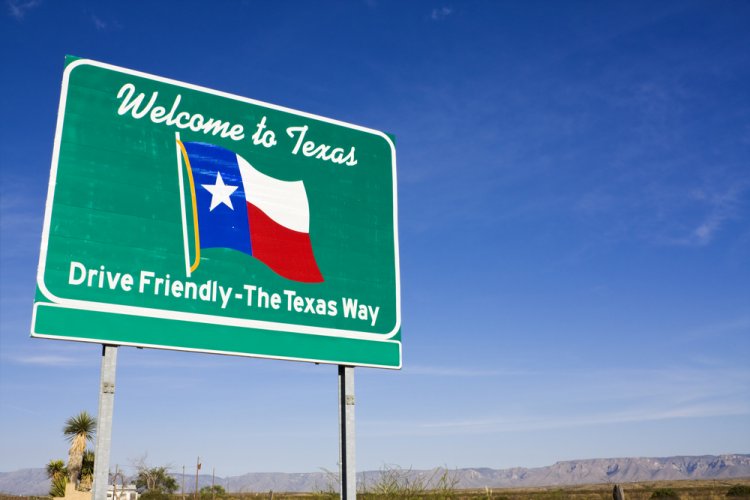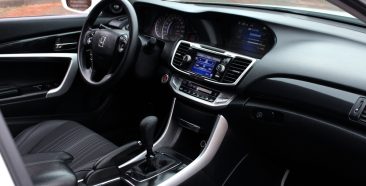
When you get a new car — or one that’s new to you — the first question you face is what kind of auto insurance coverage to get. Do you need comprehensive insurance in Texas? What liability levels should you choose? You want to find the balance between the coverage you need and the monthly premium you can afford.
A lot of people don’t understand car insurance very well. According to the law, they know they have to have it, but they aren’t quite sure what it does. We’re here to help remove the confusion so you can understand if it’s worthwhile to have comprehensive insurance in Texas or any other specific option.
What Does Insurance Do?
A lot of people wonder, “Why am I paying for insurance?” Beyond the fact that it’s a legal requirement, auto insurance helps you in several ways.
It’s a fact of life that accidents happen, and car accidents are among the most common. In Texas in 2018, there was a reportable crash every 58 seconds. That’s over 525,000 crashes in a year.
The first thing insurance does is helps you afford to pay for other people’s injuries and property damage if you cause an accident. There are a lot of ways to be at fault for a car crash, and many of them are entirely unintentional. Whether you accidentally back into someone as you’re leaving a parking space or don’t stop in time when someone slows in front of you, you can be responsible for the damages.
Depending on the coverages you choose, there may also be help from the insurance company paying for damages to your car. That’s where people talk about “full coverage,” which refers to the combination of both collision and comprehensive insurance in Texas.
Finally, if you have a car loan, your lienholder — the company you pay monthly payments to — will probably require that you have comprehensive and collision coverage. If the car is damaged beyond repair, the lienholder receives money from the insurance company for the vehicle’s value.
The Different Parts of Auto Insurance Coverage
When you’re choosing what kind of insurance to have on your vehicle, it’s helpful to know what each one is. Each policy term, your insurance company will send you an overview of your policy that lists your coverages and the cost for each one. This overview is known as a Declaration Page. Here are some of the coverage options you may see.
Bodily Injury Liability
The first line will show how much the insurance company will pay if you injure someone else in an accident. This is often listed per person and per accident.
If the injuries cost more than the insurance limits, you are personally responsible for the difference. This can cause significant financial strain and cost you your savings, retirement, and more. That’s why having appropriate liability limits is essential.
Property Damage Liability
The next type of liability is if you damage someone else’s vehicle or property. This includes everything from hitting a mailbox to rear-ending a car. If you hit a light pole or street sign, you’re responsible for those damages as well.
Once again, if the damage is more than the insurance limit, you’ll pay the difference. It’s important to think carefully before choosing only minimum coverage.
Uninsured Motorist Coverage
Sometimes other people drive without any insurance coverage and may cause an accident with you. You can try to sue them, but that often takes a lot of time and money and doesn’t bring much return. Instead, you can carry uninsured motorists coverage, which helps pay for your injuries or vehicle damage if another driver hits you without insurance.
Collision Coverage
If you are at fault for an accident, how do you get your car repaired? If you don’t have a lot of money set aside, collision coverage can help. This type of insurance will pay to repair damages to your car, up to the cash value of your car, after you pay the deductible.
If your car’s cash value is very low, this might not be helpful, but it’s often an important way to make sure you get back on the road quickly after an accident.
Comprehensive Coverage
If your car is damaged outside a collision, comprehensive coverage will help you repair it. For instance, if you have hail damage, vandalism, or the vehicle is stolen, comprehensive insurance will apply. Comprehensive coverage also helps pay for damages if you hit an animal like a deer that runs across the road.
Just like collision, this coverage will pay for repairs up to your vehicle’s cash value after you pay the deductible.
Is Comprehensive Insurance in Texas Useful?

Comprehensive insurance in Texas is very important coverage to have unless your vehicle has little cash value. Many hail storms, animals, and other perils can damage your car, and comprehensive coverage helps you get everything fixed and back on the road.
In 2019 alone, there were 785,000 hail damage claims in Texas. There were even more in 2018. If hail causes dents in your car, you want to ensure you can get those repairs done quickly.
There are also thousands of accidents in Texas each year where a driver hits an animal. That can cause a lot of damage to your car, and you want to make sure you can get that repaired with help from your insurance.
Here are other types of damage that can be repaired using comprehensive insurance:
- Theft of parts, wheels, or permanently installed electronics
- Total theft of a car
- Car fire
- Flood damage to a car
- Fire damage
- Vandalism
- Falling objects
- Glass and windshield repair
- As you can see, it’s beneficial to have comprehensive insurance as part of your Texas insurance policy!
Are You Required to Carry Comprehensive Coverage?
Most of the time, you are not required to have comprehensive coverage. It’s optional additional insurance. However, if you have a loan on your vehicle, your lienholder will probably require you to have both collision and comprehensive coverage.
If you get pulled over in Texas, the police officer will ask for proof of liability insurance, but you are not legally required to have collision and comprehensive. However, if you have a loan and don’t add these coverages, the loan company will add them for you — at a much more expensive rate!
If a car with a loan is damaged, the insurance company will generally arrange for and pay for repairs. However, if the damage is more than the car’s cash value, the vehicle is considered a “total loss,” and the cash value of the vehicle, minus the deductible, will be paid to the lienholder.
If you don’t have a loan, but your car is less than 10 years old, it’s probably a good idea to have comprehensive coverage. That way, if there’s non-collision damage to your vehicle, you can get it fixed with the help of your insurance company.
Choosing Your Comprehensive Coverage Deductible
Whenever you carry comprehensive insurance, you have to choose a deductible. This is the amount you pay before the insurance company pays for repairs.
Many people are tempted to choose the highest deductible available — often $1,000 — to pay less each month for insurance. However, that’s not always a good idea.
Let’s say you hit a deer, and the damage to your car was $1,500. At the shop, the insurance company would only pay $500. The other $1,000 is your responsibility. It can be challenging to come up with that much money quickly to fix your car!
Talk to your insurance company about the cost of other deductible options. For instance, you may be able to have a $500 deductible for not much more than the $1,000. That makes it much more affordable to have your car repaired.
Other options include $250, $100, and even $50. Get a price for each one and consider how much you’re likely to have in savings to repair your car if it’s damaged.
Do You Need Comprehensive Insurance in Texas?
Now that you understand your insurance coverage options a bit better, it might be clear whether you want comprehensive insurance in Texas or not. There are a lot of things that can damage your car, and repairs may be expensive.
If you choose not to have comprehensive coverage, non-collision damages to your car will be entirely your responsibility. That means getting the car fixed if you hit a deer, have hail damage, face flooding, and more.
Once you decide that you want comprehensive coverage, you’ll need to check the prices of different deductibles. Choose the one you can afford in an emergency but also keeps your insurance affordable.
If you’d like to discuss your insurance options, Freeway Insurance is here to help. We specialize in helping our customers get the coverage they need at a price they can afford. Contact us today to review your coverage options and determine what’s best for your situation.


